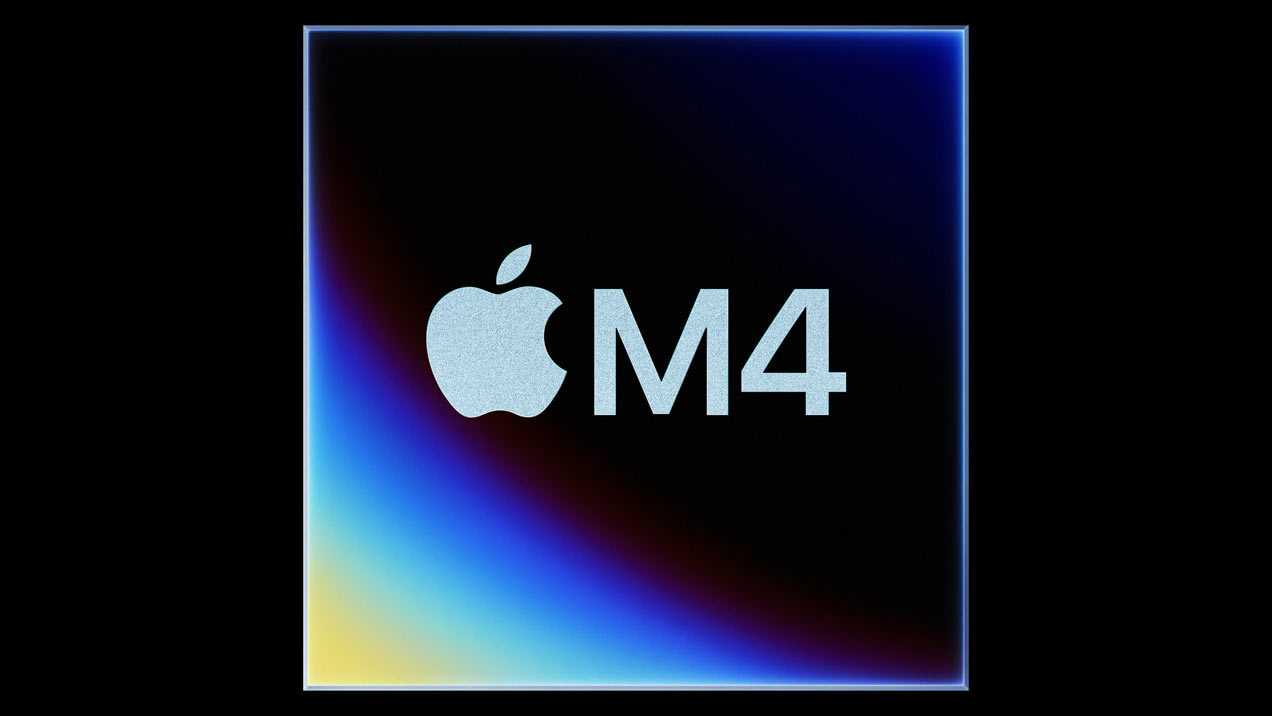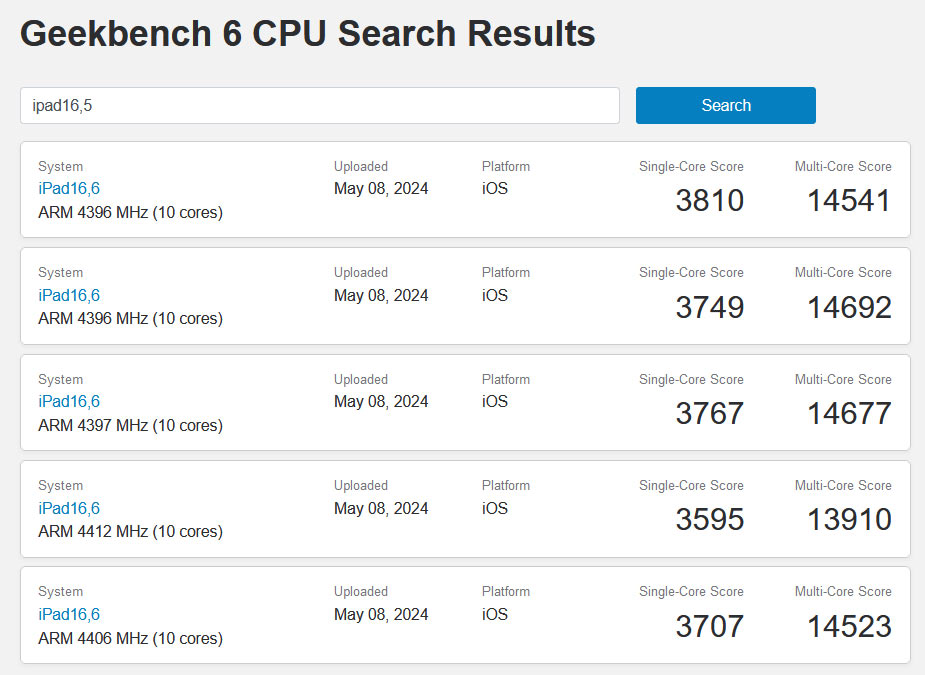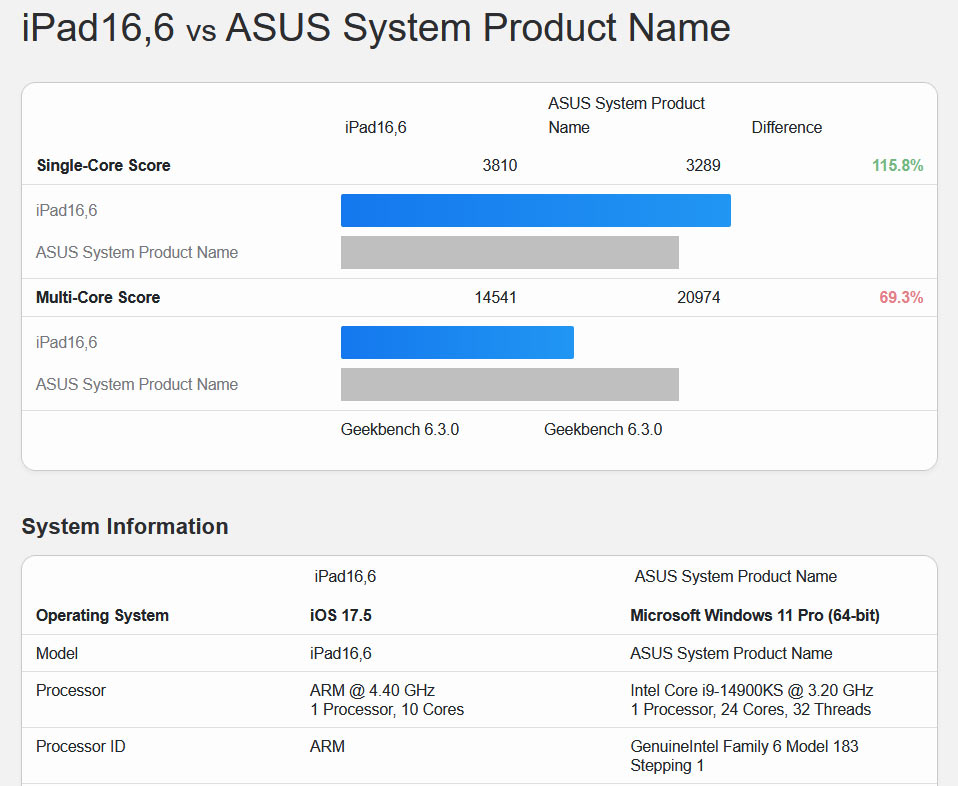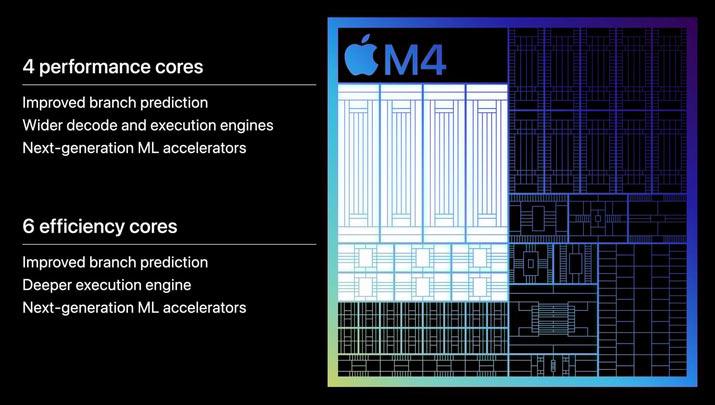
Apple's M4 processors have become convincing leaders in the Geekbench single-core leaderboard. Several scores of roughly 3,800 points have appeared in the Geekbench online database over recent hours. This is significant as single-core benchmark scores of this magnitude put clear blue water between the M4 and Intel’s flagship Core i9-14900KS. A little Geekbench database checking shows that, in single-threaded tests, Apple's M4 outpaces Intel's power-hungry desktop champ by about 16%.


Since Apple's big launch event on Tuesday, we have seen Geekbench entries for iPads packing the new M4 chip turn from a trickle into a deluge. One thing most of the entries have in common is a great single-core CPU benchmark score. Multi-core benchmarks aren't nearly as interesting, with a total of four performance cores and six efficiency cores (10 cores) working together.
In some refreshed iPad Pro designs, the new Apple M4 mixes a 10-core CPU and 10-core GPU with a 16-core Neural Engine capable of 38TOPS. Built on a second-generation 3nm process, the SoC is also claimed to offer advances such as dynamic caching, hardware-accelerated ray tracing, and AV1 hardware acceleration.

Regarding CPU performance, Apple’s in-house tests showed the new top-end M4 chip with 28 billion transistors outpaces the M2 by 50%. Compared to an Asus Zenbook 14 OLED (UX3405MA) with an Intel Core Ultra 7 155H and 32GB of RAM, Apple said M4-powered devices could “deliver the same performance using just a fourth of the power.”
The big single-core gains on Geekbench could be fueled by newly added support for Scalable Matrix Extensions (SME) — some of the subtests, like object detection and image blurring, see massive gains (~200% for object detection). Support would imply that Apple is using an ARMv9 architecture, but this isn't yet confirmed. In either case, SME would give a strong boost to some of the tests that form Geekbench’s CPU suite, bumping up the overall single-core score. However, Geekbench 6 only recently introduced support for SME with version 6.3, and Intel's competing AMX isn't supported. That's largely because matrix workloads are a better fit for other forms of compute, like the NPU or GPU, than the CPU cores. As such, it isn't clear how much real-world benefit SME would deliver if run on the CPU cores, if any, in daily usage.
The remainder of the benchmark score indicates a roughly 3% increase in performance over the prior gen M3, but we'll have to wait for more detailed testing to determine if those are the result of IPC improvements or merely from frequency increases and/or cache clock changes.
We reported on Apple M4 Geekbench machine learning scores yesterday. The generational uplift between the M2 and M4 wasn’t huge according to these early results, with the new chip being only about 23% faster, despite Apple’s boastful AI acceleration claims.







